How To Choose Your Keto Flours
This recipe may contain Amazon or other affiliate links. As an Amazon Associate I earn from qualifying purchases.
All-purpose flour or any wheat-based or grain-based flour is not keto-approved. They are as bad as white sugar as they have a lot of carbs that will raise your blood sugar level quickly and take you out of ketosis.
Luckily, there are other flours you can use for keto baking. However, keto-friendly flours have quite different properties and should not be compared or replaced by all-purpose flours to adapt a recipe.
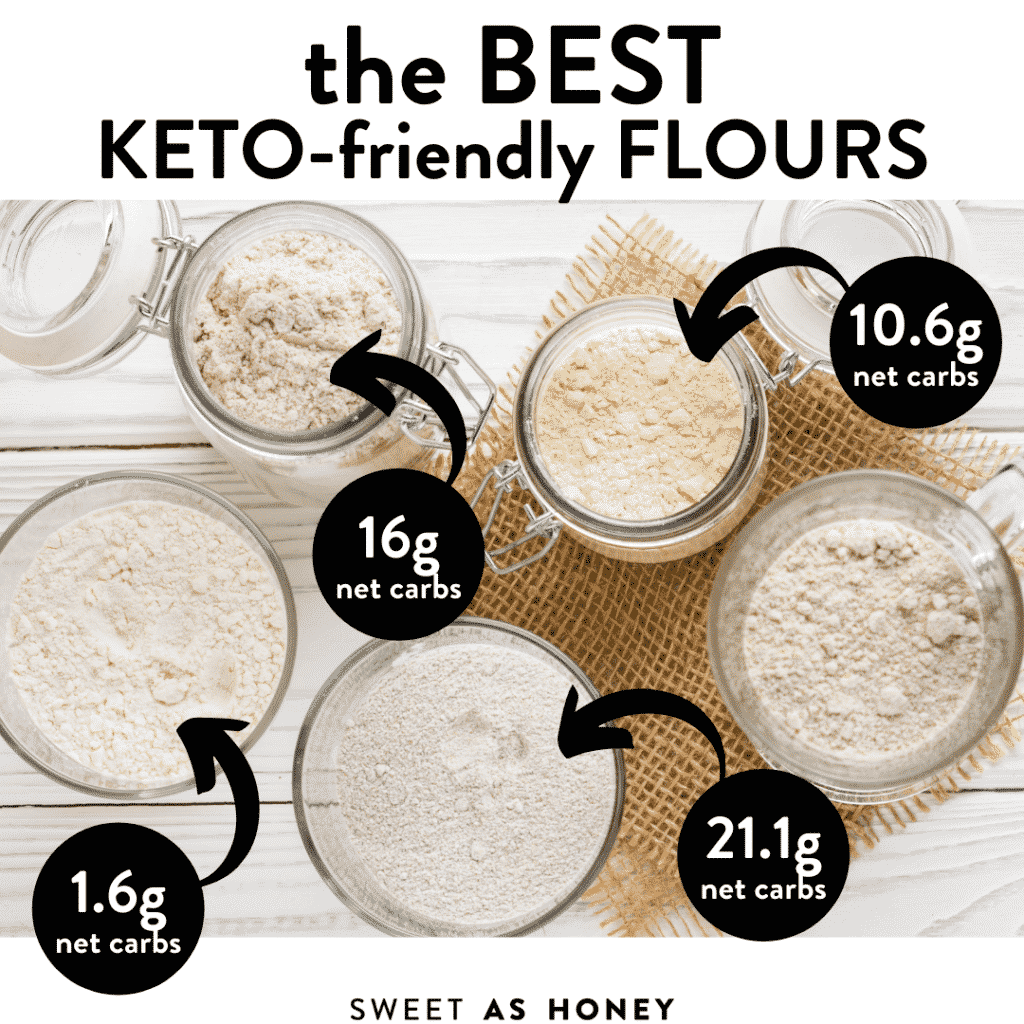
What Are Keto Flours?
Keto flours are extremely low in carbs, mostly made of finely ground nuts, seeds, or pure fiber like psyllium husk.
Their chemistry is completely different from all-purpose flour (the one you have been used to baking with).
For example, coconut flour, a popular keto flour, has 10 times more fiber which means you will use tiny amounts to obtain the same cake batter. But also, you will need to add way more liquid to activate the fiber.
What Not To Do With Keto Flours
- Don’t Swap Keto Flours– you cannot replace one sort of keto flour with another one with the same ratio.
- Don’t Use like All-purpose Flour. Unfortunately, you cannot just swap one cup of all-purpose flour with one cup of keto flour to make a cake.
- Don’t Make them at home. I know it is tempting to grind almonds in a blender to try and make homemade almond flour, but this will not be ideal. Homemade almond flour is always much coarser than its store-bought equivalent, even if you have used blanched almonds.
So as a keto baking beginner, do not try to adapt recipes or change things. Start by following a well-tested keto baking recipe, using the correct ingredients to avoid disappointment.
The Top 4 Keto Flours
There are only a few flours that are keto-approved for baking, and the most common flours you will see in keto baking recipes are listed in the table below.
The table shows, per 100 grams of flours, the amount of:
- Total carbs – the number of carbs in the flour. Carbs include sugar and fiber.
- Fiber – keto flours are the flours with the biggest amount of fiber. While fiber is listed as carbs on all food labels, they are not assimilated by your body, so you do not count fiber as a carb on your keto diet macro.
- Net carbs. Net carbs are what you count for your macros on the keto diet. It is calculated by taking the amount of fiber away from the total carb amount.
As an element of comparison, the table below shows you how many carbs all-purpose wheat flour has.
As you can see, keto flours are quite low in net carbs and safe to bake keto- and diabetes-friendly bread, cakes, and more!
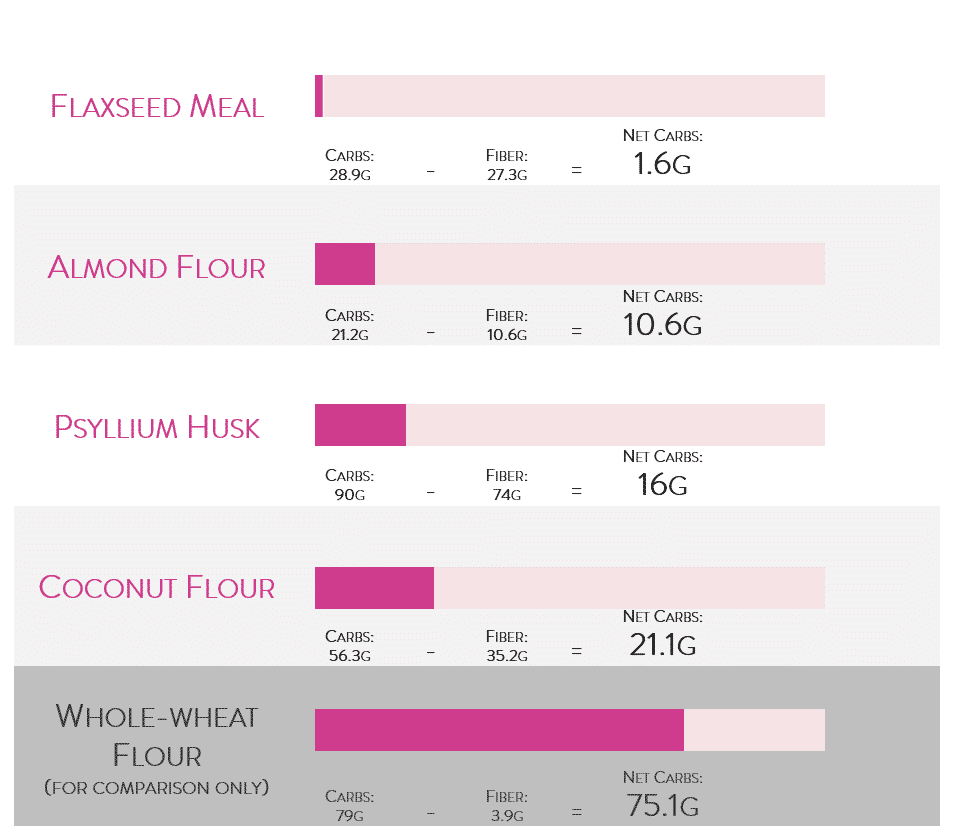
Almond Flour
Almond flour is the most common flour used in keto baking, giving the most similar color, taste, and texture to regular flour.
However, some people do not appreciate almond flour in keto baking, referring to it as gritty flour.
But almond flour does not have to be gritty!
The trick is to learn how to pick the right almond flour for keto baking and to combine it will the right liquids or blend it with the right other keto flours to reach the perfect texture.

Is Almond Flour Keto-Friendly?
Yes, almond flour is one of the most keto-friendly flours. With only 10.6 grams of net carbs per 100 grams, it has 7 times fewer carbs than plain flour.
The Various Names of Almond Flour
It can be confusing to pick up the right almond flour for keto baking since each country uses different names to refer to almond flour.
Almond flour, almond meal, ultra-fine almond flour, ground almonds, blanched almond flour, unblanched almond four.
These are most of the names you might run into that refer to almond flour, and not all of them are suitable for baking.
So, my advice in choosing the best almond flour for keto baking is to look at its most important properties:
- Texture – look for ultra-fine almond flour to avoid gritty baked goods.
- Color – it must be golden/whiteish, not brown. Brown almond flour, usually known as almond meal or ground almonds, contains almonds skin. The skin from almonds gives a darker color to the flour. It makes a coarse and gritty flour that will not absorb liquid in keto baking recipes, resulting in moist cakes or bread with a gritty texture.
- Ingredient list – you should only see blanched almonds listed. Blanched means that the skin of the almonds has been removed before the grinding process.
The most common name of keto almond flours suitable for keto baking are:
- Blanched almond flour
- Ultra-fine almond flour
Usually, any product referring to ground almonds or almond meal will not work well in keto baking recipes.
Does Almond Flour Go Bad?
Almond flour is not particularly sensitive to humidity, with only 10.6% of fiber, but it is sensitive to light and heat that can damage nut oil and flavor. It is better to keep almond flour in a sealed airtight container in the pantry, in a dry, cool, dark area for up to 1 year.
Otherwise, almond flour freezes well in sous-vide bags. If you do so, always defrost the flour 24 hours before using it in a recipe to prevent lumps.
My favorite Keto Baking Recipes with Almond Flour
Here are my favorite keto baking recipes made with almond flour:
Coconut Flour
Coconut flour is the second most common flour used in keto baking.
It has a slightly sweet flavor, and a huge amount of fiber per serving that can be tricky to manage at first.
Coconut flour is rarely used on its own in keto baking recipes because it calls for a huge amount of eggs to balance the high amount of fiber in the recipe.
Therefore, some people find that recipes made with only coconut flour have an eggy flavor.
That is why you will see many recipes combining coconut flour and almond flour or psyllium husk to decrease the number of eggs needed in the recipe and still achieve the best balance of texture and taste.
Is Coconut Flour Keto-Friendly?
Yes, coconut flour is very much keto-friendly. It has 21 grams of carbs per 100 grams which is 3.5 times less than plain flour.
You might think that 21 grams are a lot, but keep in mind that the amount of flour used in recipes is quite small!
The Various Names of Coconut Flour
Contrary to almond flour, coconut flour is always sold under one single name: coconut flour. So, all brand products called coconut flour, organic or not, are basically the same thing.
However, I have noticed that from brand to brand, some coconut flours can be grainier or greyish in color.
So, if your flour seems coarse or grey in color, it is recommended to choose a different brand, as fine as possible, and white for best results.
Storing Coconut Flour
Coconut flour contains 35% of fiber, so it absorbs moisture from the air quite fast. That is why most coconut flours bags include a silica gel packet.
Always repack coconut flour in a sealed airtight container with its original silica gel packet to prevent humidity from coming in and making lumps.
The best is to store coconut flour in a dry place and to use all the coconut flour within 3 months to ensure its chemistry remains unchanged.
Beyond this time, the chemistry may change noticeably, resulting in big differences in bread, cake, or pancake texture.
For all these reasons, I do not recommend storing coconut flour in the fridge or freezer where humidity can easily enter.
My Favorite Keto Baking Recipes With Coconut Flour
Here are my favorite keto baking recipes made with coconut flour:
Flaxseed Meal
Flaxseed meal is the third most common flour used in keto baking. Flax seeds are high-fiber tiny seeds rich in omega-3 fatty acids and lignans.
Both have been proved beneficial in improving digestive health, bad cholesterol, and reducing diabetes.
Is flaxseed meal keto-friendly?
Yes, flaxseed meal has only 1.6 grams of net carbs per 100 grams because it is almost entirely made of fiber.
Common Flaxseed Flour Names
Flax seeds are also known as linseed. They are ground into a fine meal and sold as keto-friendly flour under the following names:
- Ground flaxseed
- Flaxseed meal
- Ground linseed
- Linseed meal
Note that the ground is generally coarser than the meal, and for best results in keto baking, I recommend buying meal.
Flaxseed Colors
Flax seeds exist in two distinct colors. While they both have the same chemistry and properties, I recommend a golden flaxseed meal for keto baking. Golden flaxseed meal has
- a lovely yellow-gold color
- does not have a strong bitter/fishy flavor
Brown flaxseed meal has the same amount of carbs and interacts the same way as golden flaxseed meal in baking. However, it will give a strong earthy flavor that some people qualify as a fishy flavor.
So, if you intend to bake sweet recipes with flaxseed meal, do not choose the brown variety.
Plus, it will darken the color of your baked goods, and not everyone will enjoy a dark cake or bread.
Storing Flaxseed Meal
Flaxseed meal contains 27% of fiber, and like coconut flour, it is sensitive to humidity in the air.
Therefore, it should be stored in a sealed jar, keeping the silica gel packet provided by the manufacturer in your bag to prevent air humidity from interacting with the meal.
Also, seeds like nuts are sensitive to heat and light, so it is better to store flaxseed meal in a cold, dry, and dark place in the pantry for up to 3 months.
After this time, the product will still be good, but the chemical properties will change and can impact the result of your baked goods.
My Favorite Keto Baking Recipes With Flaxseed Meal
Here are my favorite keto baking recipes made with flaxseed meal:
Psyllium Husk
This is the fourth most used flour in keto baking. It is also the trickiest to choose and use on your keto baking journey as it is made of 70% of fiber.
Compared with all-purpose flour and its 3% of fiber!
Let us do some simple math. It means that psyllium husk can absorb 23 times more liquid than all-purpose flour.
As a result, you would not use this ingredient in high quantity, or it would make your food very dry and chewy!
Is Psyllium Husk Keto-Friendly?
Yes, psyllium husk only has about 10 grams of net carbs per 100 grabs.
Common Name for Psyllium Husk
Psyllium husk is the common name for several plant seeds used to produce mucilage, a thick, gluey compound that all plants produce.
It is mainly used as a dietary fiber to relieve constipation and in keto baking as a thickener.
Many brands like Metamucil sell psyllium husk powders as supplements – not as baking ingredients. This is NOT suitable for keto baking.
Whole psyllium husk is what you need in keto baking. It is grainier and absorbs moisture very well in baking, acting as a glue, a binder. It adds elasticity to keto bread and wraps and binds food.
Color
Raw whole psyllium husk is white/ brown in color and looks like tiny flat flakes. However, when baked, some trustable brands will turn purple/blue with temperature.
While this does not impact the flavors of your keto bread, it is quite an unappealing color.
Storing Psyllium Husk
Due to its high amount of fiber, you must store psyllium husk in an airtight container with a silica gel packet to prevent humidity from entering.
Store in the pantry in a cool, dry, dark place for up to 3 months.
Like many high-fiber baking products, the properties of husk fiber may decline over time, resulting in moist keto bread.
My Favorite Keto Baking Recipes With Psyllium Husk
Here are my favorite keto baking recipes made with Psyllium Husk:
Other Keto Flours
More than 90% of keto baking recipes use the 4 flours mentioned above. However, you can bake with a few other flours like the seed flours listed below.
They are great 1:1 swaps to almond flour. So, if you are allergic to nuts and you want to adapt a fail-proof keto baking recipe made of almond flour, swap one cup of almond flour for one cup of any of these seed flours:
- Cassava Flour – this flour is slightly higher in carbs but can still make delicious low-carb bread.
- Sunflower Seed Flour – this flour turns green when baked, so it’s better to use in a chocolate batter where the green color won’t be noticed.
- Sesame Flour – it has a strong sesame flour, so you must love sesame seeds.
- Pumpkin Seed Flour – already greenish in color when bought, but bland in flavor. This flour tends to dry the recipe slightly, and therefore it is a better swap for keto bread, pizza, or crackers. I avoid it for more moist baked goods like cakes.
Posted In:
Disclaimer
The recipes, instructions, and articles on this website should not be taken or used as medical advice. The nutritional data provided on Sweetashoney is to be used as indicative only. The nutrition data is calculated using WP Recipe Maker. Net Carbs is calculated by removing the fiber and some sweeteners from the total Carbohydrates.
You should always calculate the nutritional data yourself instead of relying on Sweetashoney's data. Sweetashoney and its recipes and articles are not intended to cure, prevent, diagnose, or treat any disease. Sweetashoney cannot be liable for adverse reactions or any other outcome resulting from the use of recipes or advice found on the Website.


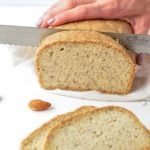






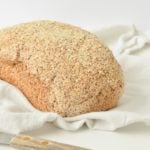
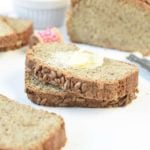
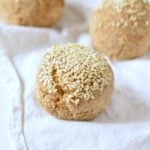


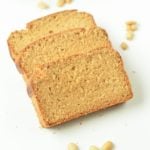


Share this post!
If you enjoyed this post, share it with your close ones!
Leave a comment
Hello, Pray you are well. What is your go to flours brands, that perform the best for you, or do you use just any that is extra fine. Thank you for your Commitment to help others on this journey, but doing all your experimentation you do, you and all that do what y’all do, and share with us, y’all are gems, and true Blessings. Thank you. Many Blessings
Thank you 🙏🙏
I don’t really have a favorite brand, I’ve made all my recipes with many different brands to make sure they are consistant!
You know they have Keto very low carb All purpose flour now ?
Yes I know but I like to provide option for the classic keto options I bake with
Hi! I’m wanting to use an all purpose gluten free flour in these keto cinnamon rolls. Do you not recommend this? We are trying to stay away from high histamine flours/foods and almonds are one of those. Thank you!
I don’t bake with all-purpose GF flour so I am not sure how it will come out as a swap to almond flour.
Have you tried Lupin flour? It is very low in carbs.
It’s not easily available in my country unfortunately, so I didn’t try it yet.
Very informative article. Explains a lot with my baking projects not really coming out right. Thank you
Hi, I have an allergy to almonds so what is an alternative to baking if the recipe calls for almond and coconut flour? Can I replace almond flour with flaxseed or sunflower flour?
Thank you
Almond flour can be replaced by same amount of sunflower seed flour or sesame flour – same amount- both are keto friendly. Enjoy!
great information!
I really appreciate your knowledge and sharing this with everybody Thank You
I would love your input/advice on finding an appropriate substitute for spelt flour. I have a recipe for a vegan zucchini loaf that calls for 1-1/2 cups of spelt flour. I’m wondering what keto-friendly flour could be used (either by itself or in conjunction with another) that wouldn’t be a complete departure from the original’s flavour & texture.
You can’t replace spelt flour or white flour by a keto flour in vegan cakes/bread. Keto flours needs eggs as a binder or psyllium husk but it’s a whole challenge to develop keto vegan baking recipes, you can’t just swap or guess. Sorry I can’t be more helpful on this one !
I love love love your recipes and guidance! Thank you!
I have seen several recipes with whey protein Isolate… is that an option for Keto too? Thanks.
This information is invaluable; thank you so much. Do you ever use Zanthum him? I would live to read your take on it. I love your recipes. Many thanks.
I am using Xanthan gum in some of my keto recipe when I want to create a dough that is flexible, easy to roll like in my keto empanadas recipe. It’s not gut friendly and some people don’t tolerate it very well but it’s keto friendly and very useful to create keto pastries or dough